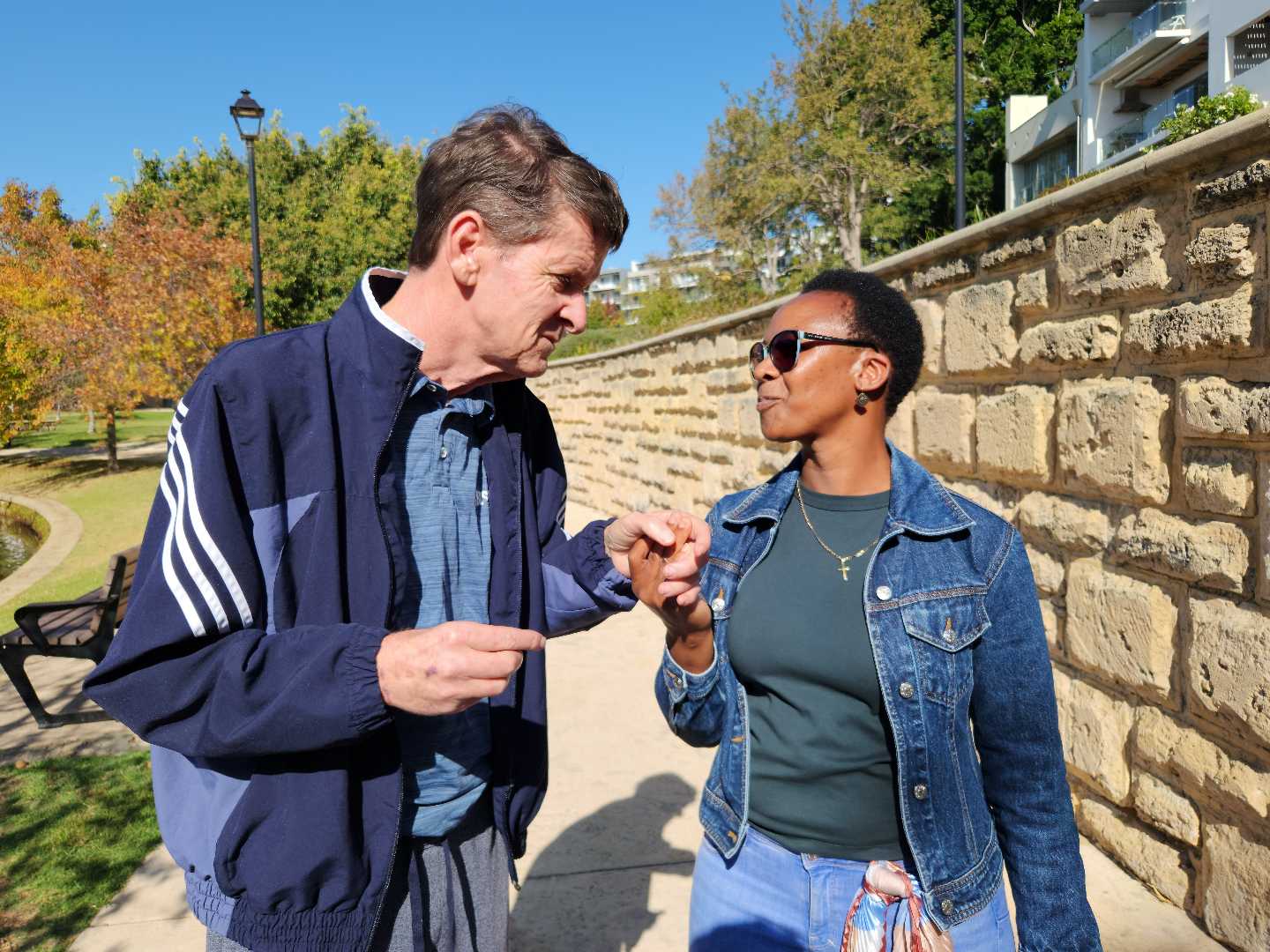By Chris Oldfield, Deputy Chair, Executive Manager – Dementia Program, The Dementia Foundation
After more than thirty years working in aged care and dementia services, I thought I had seen every challenge our sector could present. I was wrong. The establishment of The Dementia Foundation in May 2025 represents not just a new organisation, but a fundamental shift in how Australia approaches young onset dementia care.
The Professional Journey That Led Us Here
My extensive career has taken me from nursing in the UK through to executive aged care leadership across some of Western Australia’s most respected organisations. I’ve managed multidisciplinary teams and had the privilege of working with an aged care provider who operated across the largest footprint in Western Australia—from the Southwest to the Kimberley—where I oversaw over 250 staff serving more than 1,800 clients.
Throughout this journey, I’ve witnessed firsthand the evolution of dementia care in Australia. We’ve made tremendous strides in understanding the condition, developing person-centred approaches, and creating environments that support dignity and quality of life. However, there remained a glaring gap that became increasingly apparent to my colleagues Brett Parker, Holly Meijer, and myself—care and support for those under 65 living with young onset dementia.
The Moment of Recognition
Two and a half years ago, we established 2Flourish, a boutique disability support agency focused on delivering quality NDIS services. Our intention was to provide exceptional support coordination, specialist accommodation and community services for people with disabilities. However, eighteen months into our operations, we began noticing a troubling pattern.
We were receiving increasing requests from families seeking support for loved ones with young onset dementia. Initially, these requests seemed manageable within our existing framework. However, as the numbers grew, it became evident that these families faced challenges that simply weren’t being addressed by traditional aged care or generic disability services.
Understanding the Professional Gap
As someone who has dedicated their career to dementia and aged care, I recognised immediately that young onset dementia presents fundamentally different challenges that require specialist understanding:
- Diagnostic Challenges and Delays
In my experience, I have seen people who were misdiagnosed before they eventually received their young onset dementia diagnosis. This often caused great distress to the family and delayed early intervention treatments which can help ease the distress and improve outcomes.
Unlike age-related dementia, young onset dementia often manifests with behavioural changes preceding memory loss. Language difficulties, visual problems, and personality changes frequently appear first, making diagnosis more complex and often delayed. The diagnostic delay averages over four years—during which families struggle without appropriate support, often receiving inappropriate referrals to aged care services.
- Complex Family Dynamics
These families present incredibly diverse circumstances. Some have adult children, others have no children, and some have young grandchildren. Our youngest participant was in their late 30s with a young toddler—this was extremely challenging for his family, particularly as his dementia was hereditary, passed from male to male.
These are families with dependent children, teenagers navigating adolescence, and mortgages during prime earning years. The support strategies that work for elderly couples simply don’t translate to families with school-age children or young adults starting their own careers.
- Inappropriate Existing Services
People often don’t know where to even start looking for support. The aged care system, whilst excellent for its intended demographic, is entirely inappropriate for people under 65. Imagine a 45-year-old professional with frontotemporal dementia being offered a place in a day program designed for octogenarians.
Young onset dementia is misunderstood by some professionals and governing bodies. As an incurable progressive disease with different stages, everyone’s journey is different, making it difficult to forecast progression. Younger people living with dementia are often more mobile and fit until the late stages, so the behavioural challenges are greater and their needs are vastly different from someone in their 70s or 80s.
- Industry Training Gaps
Many providers in the industry lack the knowledge and skills to provide appropriate support for those living with dementia—they simply don’t have adequate training. The system is flawed and poorly regulated, with many agencies coming and going without proper training, damaging the reputation of legitimate agencies like ours and leaving families nervous to engage with support services.
Families tell us they’re anxious because of past experiences with untrained staff. This creates a cycle where people who desperately need support avoid seeking it due to previous negative experiences.
The Evidence Confirms Our Concerns
Driven by evidence-based practice, I reviewed research surrounding young onset dementia in Australia. The findings were clear and alarming:
- Approximately 30,000 Australians under 65 live with young onset dementia—expected to rise to 41,000 by 2054
- There are over 200 subtypes of dementia, each presenting unique challenges that require specialist knowledge and tailored approaches
- Research consistently demonstrates that early, age-appropriate intervention significantly improves outcomes for both the person with dementia and their family
- Yet most families only access appropriate support after reaching crisis point
The Professional Decision
As Executive Manager of our Dementia Program, it became clear that we had identified a significant gap in Australia’s health and disability landscape. This wasn’t simply about expanding our existing services; it required the creation of an entirely new model of care.
The decision to establish The Dementia Foundation was driven by professional responsibility, not business opportunity. Recognising a critical gap affecting thousands compelled us to act, building Australia’s first specialist young onset dementia organisation from the ground up.
Developing Western Australia’s First Young Onset Dementia Specialist Model
Drawing on my extensive experience in change management and service development, we began designing what would become Western Australia’s first dedicated young onset dementia organisation.
What Makes Our Approach Unique?
- Comprehensive Staff Training:
We developed specialised training protocols, ensuring staff understand the unique challenges of supporting younger individuals with dementia. - Age-Appropriate Services:
Every service—from accommodation to community support—is designed specifically for people under 65, not adapted from aged care models. - Family-Centred Strategies:
We provide holistic support, recognising the profound impacts on families, including children navigating education or spouses in prime earning years. - Professional Integration:
Our model ensures comprehensive, multidisciplinary support addressing health, employment, legal, financial, and educational needs seamlessly.
The Evidence for Specialist Intervention
My professional experience, combined with current research, demonstrates unequivocally that early, appropriate intervention changes outcomes:
- Slowed Functional Decline:
Specialist support can slow functional decline through targeted cognitive stimulation and age-appropriate social engagement
- Enhanced Family Stability:
Early intervention provides families with understanding, coping strategies, and practical support before crisis develops
- Improved Quality of Life:
Maintaining meaningful activities, relationships, and independence for longer periods significantly improves wellbeing for all family members
- Reduced System Efficiency:
Appropriate early support prevents costly crisis interventions and inappropriate use of resources, such as people being in hospital or aged care because they have no where else to go!
Current Impact and Professional Validation
Since establishing The Dementia Foundation, we’ve provided specialist support to families across Western Australia. The outcomes validate our professional assessment of the need:
- Families report relief at finally accessing age-appropriate services that understand their unique circumstances
- Healthcare professionals are referring with confidence, knowing we provide specialist rather than generic support
- Staff retention and satisfaction are exceptional, as our team can finally provide truly appropriate care
- Care outcomes demonstrate the effectiveness of our specialist approach compared to generic disability or aged care services
Our Commitment to Growth
As a dementia care professional, I can state categorically that every Australian family affected by young onset dementia deserves access to specialist support. The current situation, where families struggle for years before accessing appropriate help, is professionally and ethically unacceptable.
We’re not simply another service provider; we’re pioneering a new standard of care that recognises young onset dementia as requiring specialist understanding, age-appropriate interventions, and family-focused support strategies.
Looking Ahead: Our Professional Responsibility
The establishment of The Dementia Foundation represents more than organisational development; it’s about professional responsibility to ensure international best practice care reaches those who need it most.
Research continues to advance our understanding of young onset dementia, early intervention strategies, and effective support models. Our role is to translate this evidence into practical, accessible services.
Professional education remains crucial. We’re committed to training healthcare providers, sharing our model with other organisations, and advocating for system-wide improvements.
Every family deserves access to specialist care that recognises their unique needs and provides hope through evidence-based intervention.
Final Thoughts: Why This Matters
After more than three decades in this sector, establishing The Dementia Foundation represents the most important professional contribution I’ve made. When you identify a critical gap in services affecting thousands of families, professional integrity demands action.
Young onset dementia is not simply early-onset age-related dementia; it’s a distinct condition requiring specialist understanding, age-appropriate services, and family-focused support. The evidence for early intervention is compelling, and the need for specialist services is urgent.
We invite healthcare professionals, families, and anyone committed to improving dementia care to join us in ensuring no Australian family faces young onset dementia without appropriate specialist support.
For specialist support or information visit www.tdfwa.org.au or call The Dementia Foundation on 1300 865 282
Related Articles:
- Understanding the NDIS for Young Onset Dementia Families
- Early Warning Signs: When to Seek Help
- Creating a Supportive Home Environment
- Talking to Children About Young Onset Dementia



